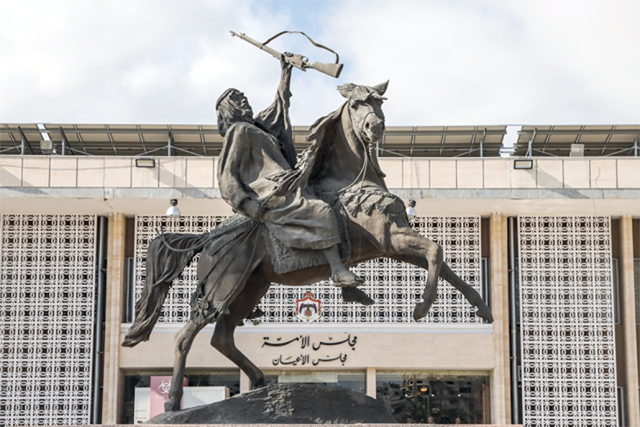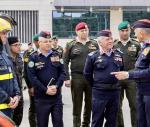You are here
Senate president urges political parties to express views in Parliament, not in street, reiterates Jordan’s support for Palestine
By JT - Apr 08,2025 - Last updated at Apr 08,2025

Senate President Faisal Fayez on Tuesday calls on political parties, particularly those represented in the Lower House, to utilise Parliament as a platform to express their political views (JT file)
AMMAN — Senate President Faisal Fayez on Tuesday called on political parties, particularly those represented in the Lower House, to utilise Parliament as a platform to express their political views, rather than resorting to street protests and sit-ins.
Speaking at the opening of a Senate session, Fayez warned against the exploitation of public sentiment regarding events in Gaza and the occupied West Bank by individuals seeking to destabilise the country. He stressed the importance of safeguarding national unity and stability in the face of external challenges, the Jordan News Agency, Petra, reported.
Fayez reiterated that Jordan, rooted in its Arab identity, will not allow the conflict with Israel to spill over into its territory or distract from the suffering and injustices faced by Palestinians in Gaza and the West Bank.
He urged the Jordanians to reject voices of sedition and disinformation and to stand firmly behind the Jordan Armed Forces–Arab Army (JAF) and security services, describing them as the "nation’s shield." He also called on Jordanians to rally around His Majesty King Abdullah, commending the King’s steadfast leadership.
Highlighting Jordan’s historical resilience, Fayez said the Kingdom has consistently overcome political and security challenges, thanks to the wisdom of its Hashemite leadership, the awareness of its people, and the strength of its military and security institutions.
He reminded the public of the sacrifices made by Jordanian soldiers in defense of Palestine, citing key battles such as Bab Al Wad, Latrun, Karameh, Jenin, and Jerusalem. He stressed that Jordanians and free people across the Arab world will never forget the Hashemites' enduring commitment to Palestine.
Fayez also recalled Sharif Hussein Bin Ali’s refusal to recognise the British Mandate or accept the establishment of a Jewish homeland in Palestine, an act that led to his exile to Cyprus. Upon his death, he was laid to rest in the courtyards of Al Aqsa Mosque.
He also commemorated late King Abdullah I, who was assassinated at Al Aqsa Mosque during Friday prayers, and the late King Hussein, who advocated a just solution for the Palestinian people and vigorously defended their legitimate rights.
Fayez described late King Hussein’s unwavering stance on Palestine and Jerusalem as a cornerstone of the Arab and Islamic struggle, one that preserved holy sites in the face of decades-long Judaisation attempts.
He emphasised that His Majesty King Abdullah continues this legacy, placing the Palestinian cause at the forefront of his diplomatic and humanitarian efforts.
The King has vocally opposed the "brutal" Israeli aggression against Palestinians in Gaza and the West Bank, overseen the delivery of humanitarian aid, personally participated in aid airdrops, and directed the continued operation of Jordanian military field hospitals in Gaza and other Palestinian areas.
Fayez underlined that Jordan, under Hashemite leadership and unified by its tribal and social fabric, remains a steadfast defender of the Palestinian cause. He also recalled the participation of Jordanian tribes in the 1936 Palestinian revolt and the enlistment of over 1,200 Jordanians in the 1948 war. Despite limited resources, with only 4,300 soldiers at the time, the JAF successfully defended the West Bank from occupation.














